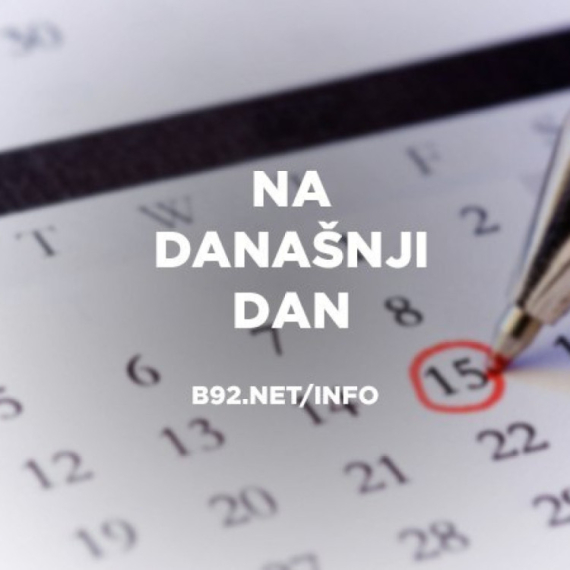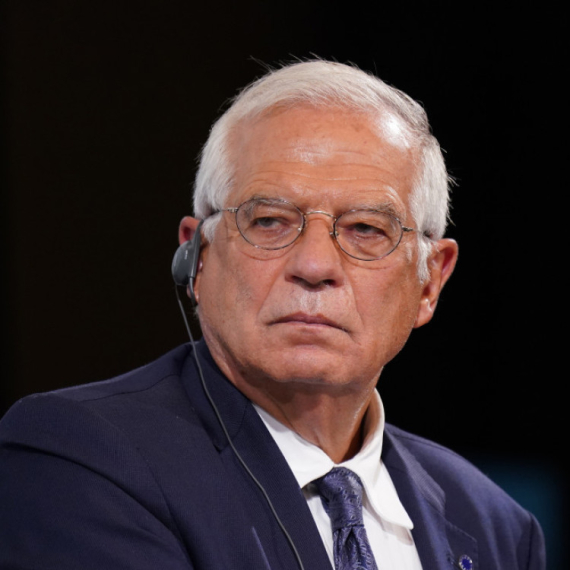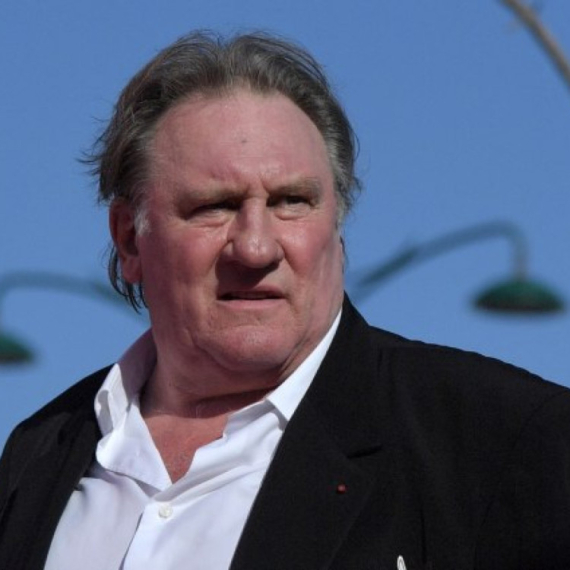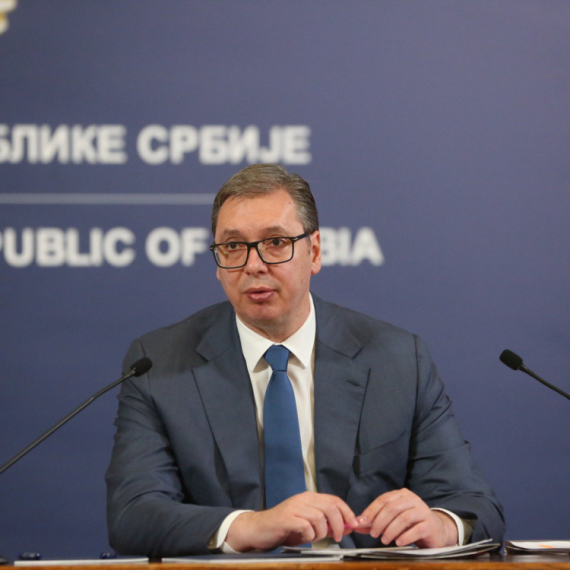Former PM: I had no mandate to tear Serbia apart
Vojislav Koštunica has reacted to accusations coming from a German diplomat that he was "responsible for the failure of the Kosovo talks in 2007".
Thursday, 07.06.2012.
19:07

Vojislav Kostunica has reacted to accusations coming from a German diplomat that he was "responsible for the failure of the Kosovo talks in 2007". The leader of the DSS party was at the time Serbia's prime minister, while Wolfgang Ischinger represented the EU in the negotiations. Former PM: I had no mandate to tear Serbia apart Belgrade-based weekly Vreme last week published Ischinger's statements, when he said that "the basic problem in the Kosovo talks was the position held by Kostunica - who responded negatively to all suggestions". "He had nothing useful to suggest except to say 'no' to all proposals," the German diplomat said of the former Serbian premier. Kostunica spoke for Vreme this week to say that the truth was that Ischinger entered the talks "with only one goal and idea: for Kosovo to become independent in the end, with the Serbian authority's willing consent": "And there's no doubt about it - it can easily be checked and verified - that during the negotiations Ischinger never put forward any proposal that meant that Serbia's territorial integrity would be respected and preserved. On the other hand, representatives of Serbia based their proposals on comparative experiences, to present legal, compromise, functional and sustainable solutions." According to him, the Serbian side in the end presented a concrete model of broadest autonomy and a status of "most favored ethnic minority" for Albanians in Kosovo, while the status of Kosovo itself would have been based on the status of Hong Kong within China. However, Kostunica continued, Ischinger ignored all Serbian proposals, to again suggest models for Kosovo's independence - "therefore, he could not have expected to receive anything but a negative answer". "The national parliament did not give me the powers to negotiate about tearing Serbia apart, or to give my consent for the independence of Kosovo. My mandate was only to negotiate a compromise solution within a formal preservation of Serbia's sovereignty and territorial integrity," he explained. The former prime minister also rejected Ischinger's claims that he "blocked progress that could have been in the interest of the Serb nation": "The progress of the Serb nation that Ischinger is talking about is essentially consent to Kosovo's independence. Ischinger believes that I blocked that type of progress, because I did not give my consent to any of the models for Kosovo's independence. The essence that we were unable to agree on then, and cannot agree on now, is the most principled issue of all: who has the right to decide what is in Serbia's interest?" According to Kostunica, Ischinger is free to speak about the interests of Germany or the EU - however, the right to speak about Serbia's interests belongs to the Serbia's people, and their representatives. In the interview for the weekly, the German diplomat also charged that Kostunica "perhaps thought that Serbia should be some kind of annex to Russia". "It has always been unacceptable to me for Serbia, as an old state and the Serb nation, as an old, state-making people, to be anyone's annex, whether it be Germany, the EU, or, as Ischinger had put it, of Russia," Kostunica responded, and added: "I stood for it in the past and I always will stand for Serbia to be an independent and free country - something that generations of Serbs strove toward, something that the history of Serbs is particularly remarkable for." Vojislav Kostunica (file) Vreme
Former PM: I had no mandate to tear Serbia apart
Belgrade-based weekly Vreme last week published Ischinger's statements, when he said that "the basic problem in the Kosovo talks was the position held by Koštunica - who responded negatively to all suggestions"."He had nothing useful to suggest except to say 'no' to all proposals," the German diplomat said of the former Serbian premier.
Koštunica spoke for Vreme this week to say that the truth was that Ischinger entered the talks "with only one goal and idea: for Kosovo to become independent in the end, with the Serbian authority's willing consent":
"And there's no doubt about it - it can easily be checked and verified - that during the negotiations Ischinger never put forward any proposal that meant that Serbia's territorial integrity would be respected and preserved. On the other hand, representatives of Serbia based their proposals on comparative experiences, to present legal, compromise, functional and sustainable solutions."
According to him, the Serbian side in the end presented a concrete model of broadest autonomy and a status of "most favored ethnic minority" for Albanians in Kosovo, while the status of Kosovo itself would have been based on the status of Hong Kong within China.
However, Koštunica continued, Ischinger ignored all Serbian proposals, to again suggest models for Kosovo's independence - "therefore, he could not have expected to receive anything but a negative answer".
"The national parliament did not give me the powers to negotiate about tearing Serbia apart, or to give my consent for the independence of Kosovo. My mandate was only to negotiate a compromise solution within a formal preservation of Serbia's sovereignty and territorial integrity," he explained.
The former prime minister also rejected Ischinger's claims that he "blocked progress that could have been in the interest of the Serb nation":
"The progress of the Serb nation that Ischinger is talking about is essentially consent to Kosovo's independence. Ischinger believes that I blocked that type of progress, because I did not give my consent to any of the models for Kosovo's independence. The essence that we were unable to agree on then, and cannot agree on now, is the most principled issue of all: who has the right to decide what is in Serbia's interest?"
According to Koštunica, Ischinger is free to speak about the interests of Germany or the EU - however, the right to speak about Serbia's interests belongs to the Serbia's people, and their representatives.
In the interview for the weekly, the German diplomat also charged that Koštunica "perhaps thought that Serbia should be some kind of annex to Russia".
"It has always been unacceptable to me for Serbia, as an old state and the Serb nation, as an old, state-making people, to be anyone's annex, whether it be Germany, the EU, or, as Ischinger had put it, of Russia," Koštunica responded, and added:
"I stood for it in the past and I always will stand for Serbia to be an independent and free country - something that generations of Serbs strove toward, something that the history of Serbs is particularly remarkable for."
























































Komentari 14
Pogledaj komentare